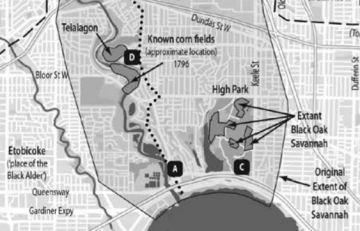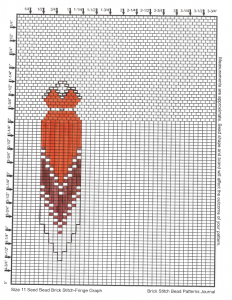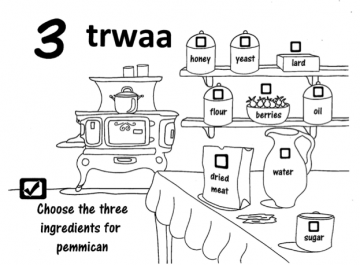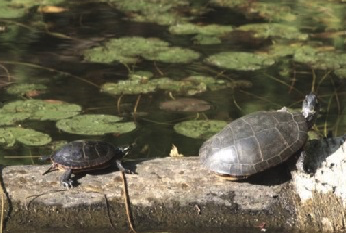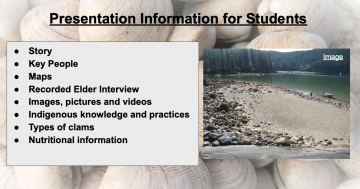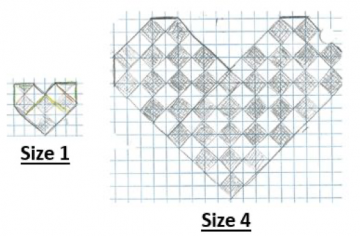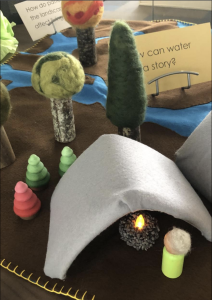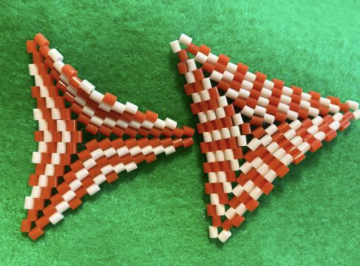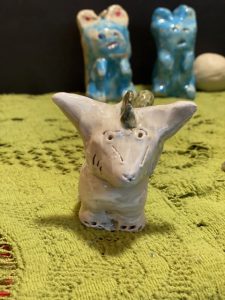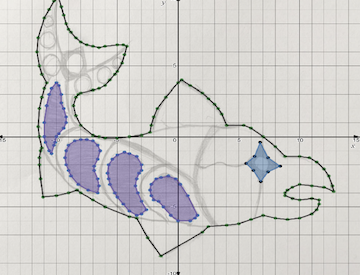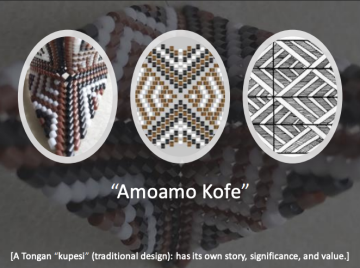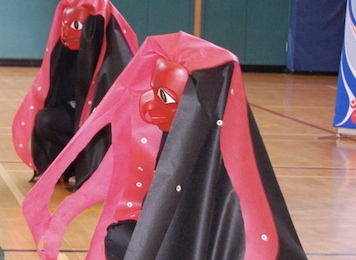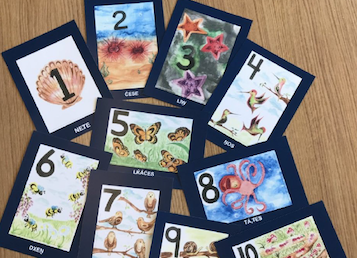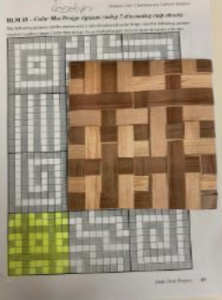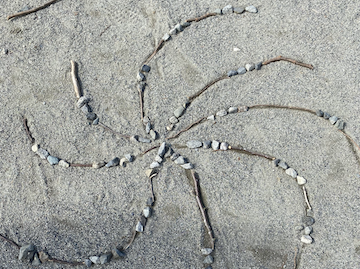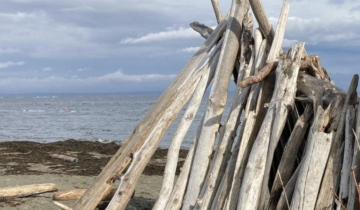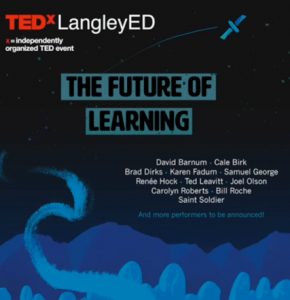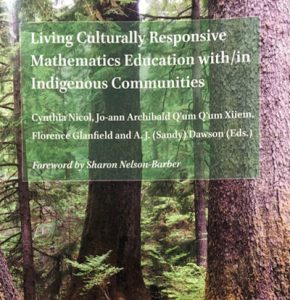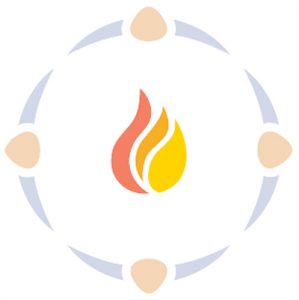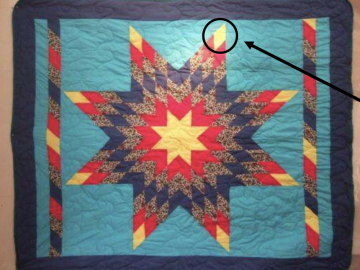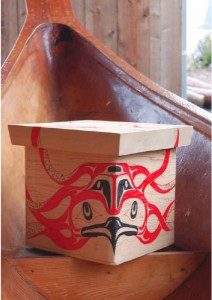MMIWG on Unit for 2D-3D, Review Graphs, and Finance
This resource features a five-day integrated lesson on Missing and Murdered Indigenous Women and Girls (MMIWG) from a mathematical perspective and social justice lens.
Learning Michif & Cree through Elementary Math
Learn Michif and Cree through this printable counting 1-10 activity book
Math Can Have Meaning
In this activity students engage in a 3-Act-task surround Indigenous Storywork utilizing the Okanagan Legend “How Turtle Set the Animal Free”.
Exploring Elapsed Time Through Indigenous Story
Students explore elapsed time through Indigenous Storywork principles and the book “The First Salmon Run” by Rhonda Girard.
Clam Garden of the Coastal First Peoples: Sinusoidal Modelling
Allison Higinbotham’s lesson combines Indigenous knowledge and perspectives with mathematical inquiry to explore the history and ecological significance of clam gardens.
Math is All Around Us!
The authors in this resource demonstrate innovative ways to incorporate beading and cedar weaving into their algebra classrooms.
Opening the Basket Stó:lō Sitel Curriculum
This presentation showcases how three educators integrated Surrey Schools’ Opening the Basket Sto:lo Sitel curriculum into grades 1-4 math. Through hands-on activities like measuring fish and creating maps, students explored math concepts while learning about Indigenous culture. Indigenous Storywork guided the entire process.
Beadwork + Mathwork
Allison Gardner’s resource integrates beading into grades 4-8 math through a First Peoples Principles of Learning lens. Using the Medicine Wheel as a starting point, students explore math concepts while learning about beadwork. The resource includes detailed lesson plans and references to relevant texts.
Supernatural Wasco and Proportion
Leighann Rodger’s seven-session lessons blend Haida Supernatural Beings with math. Students explore fractions and proportions by creating models of the supernatural being Wasco.
Desmos Art Project
This math lab uses Desmos to reinforce linear patterns, tables, and graphing. Students recreate art inspired by Kiki DesJarlais. A step-by-step guide and self-assessment are included.
The Paper Drum Project
Megan Hanna’s Paper Drum Project merges math and culture, as students explore geometry and measurement while learning about Indigenous drumming traditions.
Exploring Math and Stories through Geometric Beading
Stan Manu’s presentation explores the convergence of beadwork, math, and Indigenous knowledge. A five-session project culminated in a community “hyper-blanket,” demonstrating the power of collaborative learning.
Non-linear Storytelling through Rotational Symmetry
Janelle Findlay’s lesson explores rotational symmetry through the lens of Coast Salish artist Susan Point’s storm sewer cover design. Students create their own symmetrical art while considering the storytelling potential of their designs.
